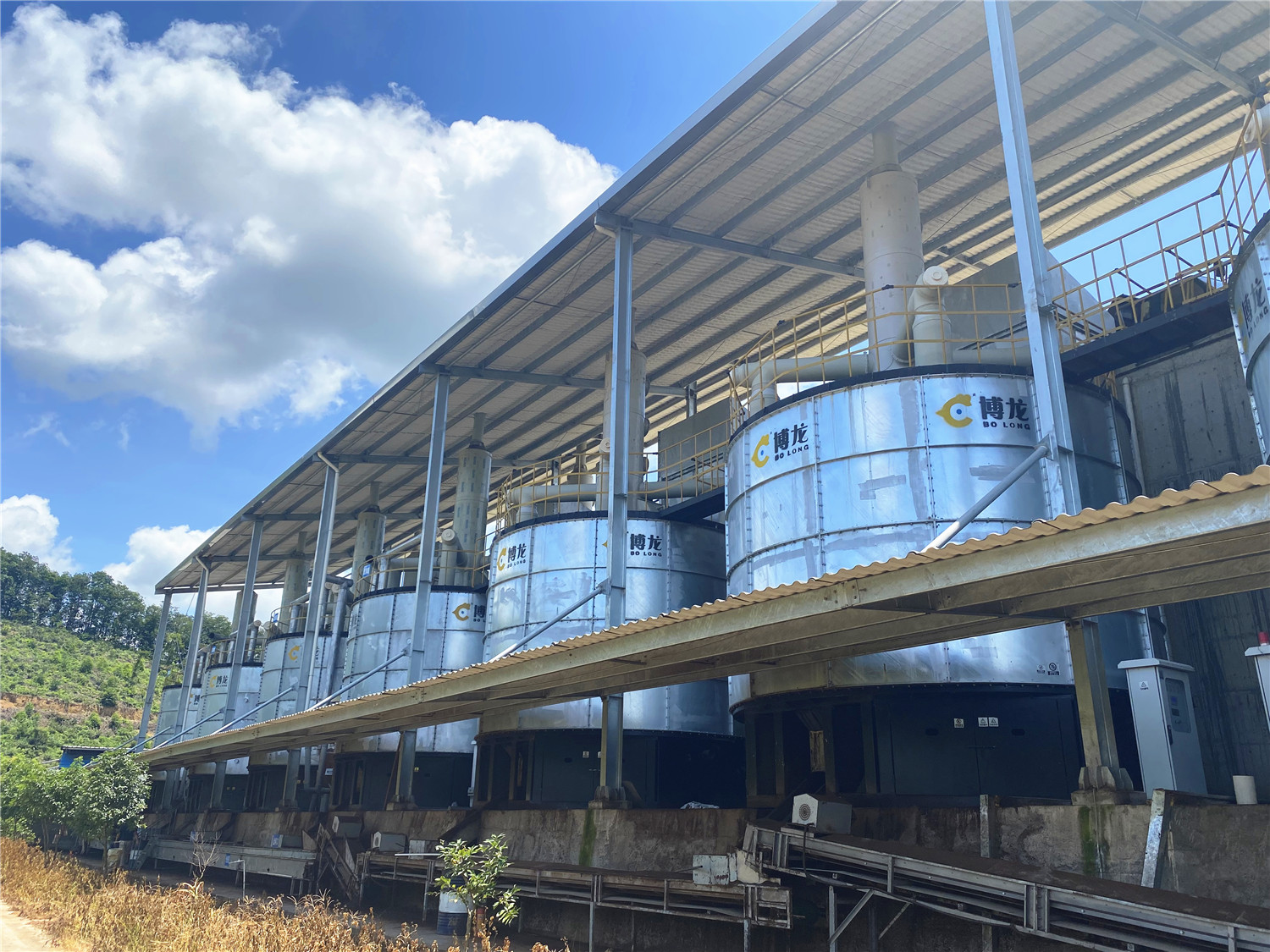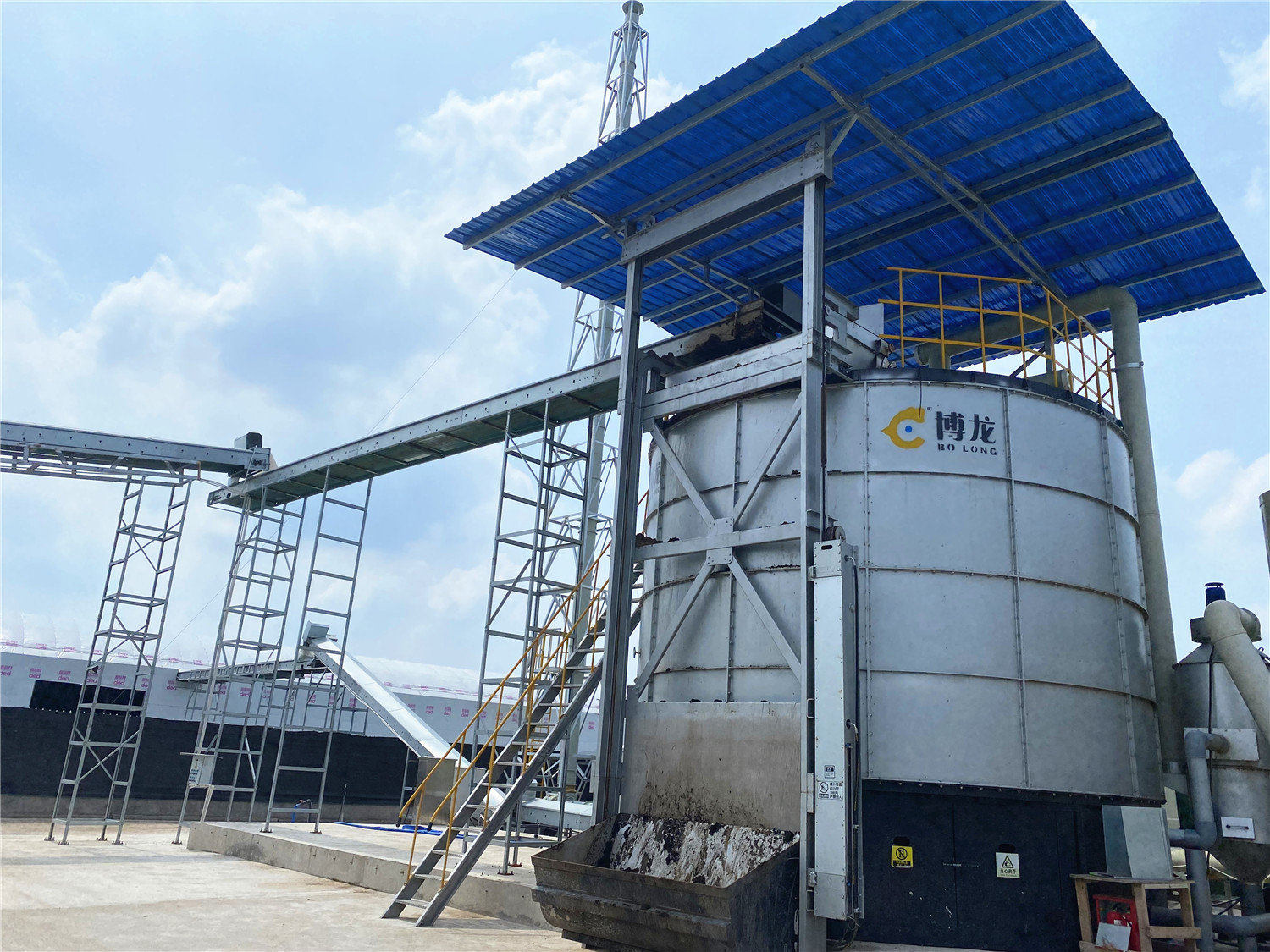Manure treatment is of great significance in modern agricultural production. It is not only related to the sustainable development of agricultural production and environmental protection, but also an important link in promoting agricultural circular economy and public health.

1. Improve resource efficiency:As a by-product of livestock and poultry farming, manure is returned to the field after scientific treatment, which is an effective way to achieve material circulation and energy flow in agricultural ecosystems. This not only reduces the use of chemical fertilizers, improves soil fertility, but also promotes crop yield and income increase.
2. Reduce environmental pollution: If manure is discharged directly into the environment without treatment, it will cause serious water and soil pollution. Through effective manure treatment technology, harmful substances can be reduced or even harmless, thereby protecting the ecological environment.
3. Environmental protection, control of breeding pollution:If livestock and poultry manure is not properly treated, a large amount of nutrients such as nitrogen and phosphorus and pathogens will enter the water body, causing eutrophication and water source pollution. Scientific manure treatment can effectively control this pollution and maintain water resource safety.
From the above, we can know that if manure is not properly treated, it will cause great harm to the environment. On this basis, large-scale manure fermentation tanks emerged, which solved the problem of organic waste treatment in agricultural production on a large scale.
1.Improve processing efficiency
Large-scale manure fermenters use advanced automated control systems that can automatically adjust key parameters in the fermentation process, such as temperature, humidity, and oxygen supply. These devices are usually equipped with sensors and monitoring systems that can monitor the fermentation progress and environmental conditions in real time, and adjust operating parameters in a timely manner to optimize the production process. This not only reduces the need for manual operation, but also ensures the consistency and stability of the fermentation process.
2.Promote resource recycling and promote sustainable agricultural development
Large-scale manure fermenters can convert organic waste such as livestock and poultry manure into high-quality organic fertilizers through high-temperature aerobic fermentation technology, realizing the resource utilization of waste. This conversion not only reduces environmental pollution, but also provides a green and efficient source of organic fertilizer for agricultural production. At the same time, it can also reduce the use of chemical fertilizers and pesticides, and promote sustainable agricultural development.
3.Control environmental pollution
Large-scale manure fermenters effectively reduce the direct discharge of organic waste through closed design and efficient microbial fermentation process. And it uses an automated control system that can monitor and adjust the temperature, humidity and other conditions in the fermentation process in real time to ensure that the fermentation process is efficient and stable. At the same time, it can effectively inhibit the breeding of harmful bacteria and parasite eggs, reduce the occurrence of diseases and pests, and ensure the safety of agricultural production.

In recent years, with the improvement of agricultural automation, the amount of agricultural and animal husbandry waste processing capacity in various countries has been rising. Last year, Bolong gained many customers at the exhibition with its high-quality large-scale manure fermenters. Among them, Mr. Tham from Malaysia is a breeder with 400,000 laying hens. He said that although his breeding scale is large, the treatment of waste is really a headache for him. We all know that Malaysia is located in the tropics. If the waste is not handled in time, the smell will be very unpleasant, and if it is not handled properly, it will breed bacteria and endanger the health of people and livestock. When he learned about Bolong’s fermenters, he immediately made an appointment to visit the factory. After that, he ordered two of Bolong’s latest 280 model fermenters. Bolong sent specialized technicians to Mr. Tham’s farm to guide the installation. A few days ago, Bolong contacted Mr. Tham and asked about the use of the 280 model fermenters. Mr. Tham expressed great satisfaction. He said that this large manure fermentation tank can meet his needs well. His farm is now much cleaner, and he also sold the high-quality organic fertilizer produced by the fermenter to his farmer friends, which received unanimous praise.This example shows the successful application of large-scale manure fermenters in practical areas.
In the process of manure treatment, large-scale manure fermenters play an indispensable role. Through the efficient fermentation process, it not only converts waste into organic fertilizer, but also greatly reduces environmental pollution. We look forward to more such environmental protection equipment in the future to bring more convenience and benefits to our production and life.